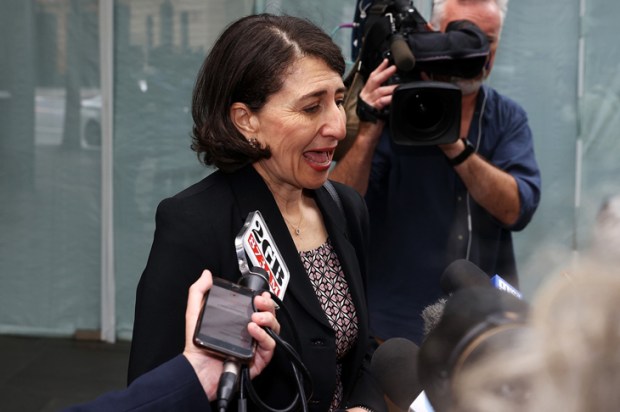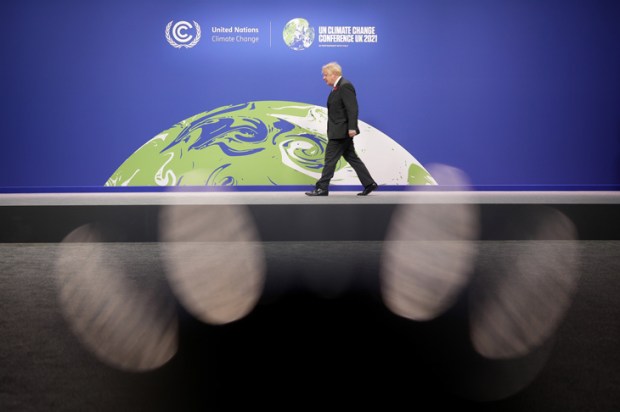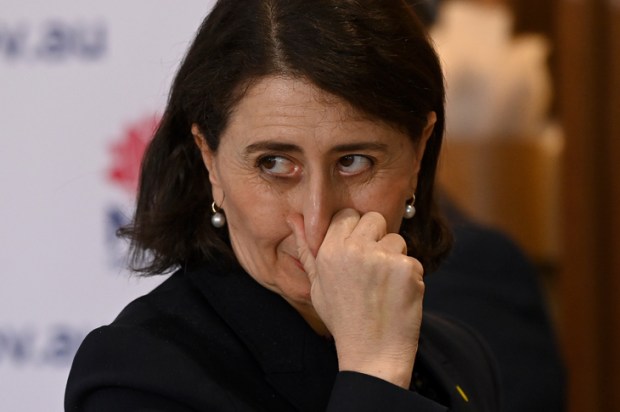
On one of his visits to Australia, Bill Clinton confessed to former NSW Premier Bob Carr that ‘Some people in my country believe America must always have enemies.’ Enter the People’s Republic of China, stage left. For Democrats and Republicans alike, China-bashing has become a new national sport, manufacturing the latest US bogey. The puzzle for Australian foreign policy is why America’s enemies need to be our enemies.
History teaches us that when small nations, often wracked by insecurity and geographical isolation, overcompensate when seek the protection of large powers. They reach beyond their national interests, rationally defined, and readily march to the beat of the large nation’s folly. This is how, for instance, Australia got into Vietnam and Iraq, and why it can’t get out of Afghanistan.
This pattern of hyperbole is evident in the rhetoric of Australia’s foreign policy establishment. To earn brownie points with their great and powerful friend, they tend to go harder at the Chinese than do the Americans themselves. As absurd and reckless as it may seem, this Antipodean cheer squad is preparing for military conflict. Let me give two examples of this nonsense.
From WikiLeaked US cables, we know that in March 2009 the then Prime Minister Kevin Rudd advised the Secretary of State, Hillary Clinton, ‘to deploy force [against China] if everything goes wrong’. Rudd regards himself as ‘a brutal realist on China’, building up an armada of Australian attack submarines as ‘a response to China’s growing ability to project force’. When the Americans talk about the military containment of China, they have a sympathetic dominion in Heavy Kevvie.
In our media, the chief American cheerleader is Greg Sheridan from the Australian. On the Sky News Australian Agenda program on 20 November he claimed that China today is in the same position as Japan in the 1920s — the clear implication being that sometime in the next 20 years China will attack the US. This is the type of lunacy we are dealing with.
China’s overwhelming national interest is in the alleviation of poverty through trade and economic expansion. Already it has lifted hundreds of millions of its citizens out of squalor, giving them the dignity of work, shelter and social aspiration. This is, without doubt, the greatest human rights achievement in the history of civilisation. But still, there is more to be done. Australia’s best security policy with China is free trade, ensuring that our resource exports continue to support China’s movement towards free markets and economic development. Over time, our expertise in the services sector will emerge as a lucrative export opportunity for China’s fast-growing band of middle-class consumers.
Rudd’s and Sheridan’s emphasis on a military agenda is counter-productive. They have Canberra’s Department of Foreign Affairs and Trade playing a game of diplomatic Twister: trying to foster the Chinese as our biggest trading partner while also trying to corral them as our biggest security concern.
•••
In his interview with the mace-man, Tony Jones, on Lateline last month, Paul Keating made some telling points about Rudd and Australian foreign policy. He noted that following Barack Obama’s speech to the Australian Parliament, the Foreign Minister appeared:
… on The 7.30 Report [and] gave a very hardline response to China … He said, ‘We’re not going to have any national security policy dictated by any other external power.’ A cynic could say, ‘Well, except the United States.’
Call me a cynic, but that’s precisely what I thought about Rudd’s statement. He showed yet again how his interest in China is driven by Sun Tzu’s exhortation to ‘Know thy enemy’. Rudd has studied the Chinese solely for the purpose of assisting the Americans.
The US has a powerful hold on the Australian political class. Look at the political seduction of Julia Gillard. In her public statements she has moved
180 degrees: from advocating an independent foreign policy in 2005 to lining up with the Obama doctrine during the recent presidential visit. Seemingly mesmerised by the Black Jesus, she has sleepwalked Australia’s foreign policy into the absurdity of containing China. For similar misjudgments, George W. Bush was firmly criticised by the Labor Left and the Greens. Yet upon listening to Obama’s bellicose stance against China, these MPs rolled over and had their tummies tickled in public.
Thankfully, Keating is not the only Labor elder to speak out against this kind of naivety. On his blog Bob Carr has argued:
China will acquire a bigger strategic role to go with its economic growth. As Gareth Evans puts it, ‘Great powers do what great powers do.’ In the meantime, there is no evidence China has aggressive, expansionist or interventionist instincts.
The American reaction to China, however, displays all the neuroses of the world’s most insecure empire, always imagining its enemies at work to bring it down. I recall an Australian-American Leadership Dialogue around 1999 where Rich Armitage, later to become a Deputy Secretary of State, was talking about war over the Taiwan Straits and demanding to know whether Australia would take a hand. ‘Are these people nuts?’ was the whispered response of all the Australians.
This is Bob the Blogger’s finest moment. Psychic Sally, however, is predicting retribution. Carr’s membership of the foreign policy club, aka the Australian American Leadership Dialogue, is bound to be cancelled.
The post Latham’s law appeared first on The Spectator.
Got something to add? Join the discussion and comment below.
Get 10 issues for just $10
Subscribe to The Spectator Australia today for the next 10 magazine issues, plus full online access, for just $10.














Comments
Don't miss out
Join the conversation with other Spectator Australia readers. Subscribe to leave a comment.
SUBSCRIBEAlready a subscriber? Log in